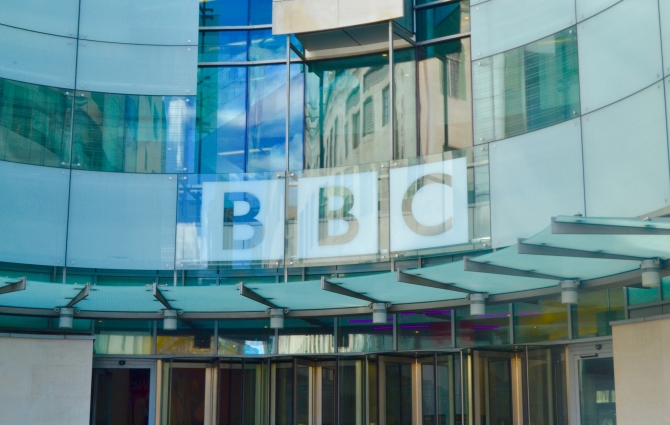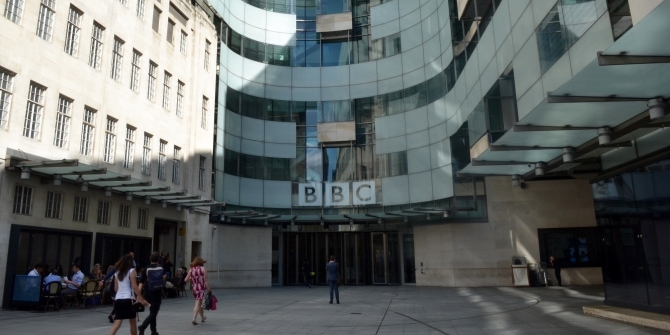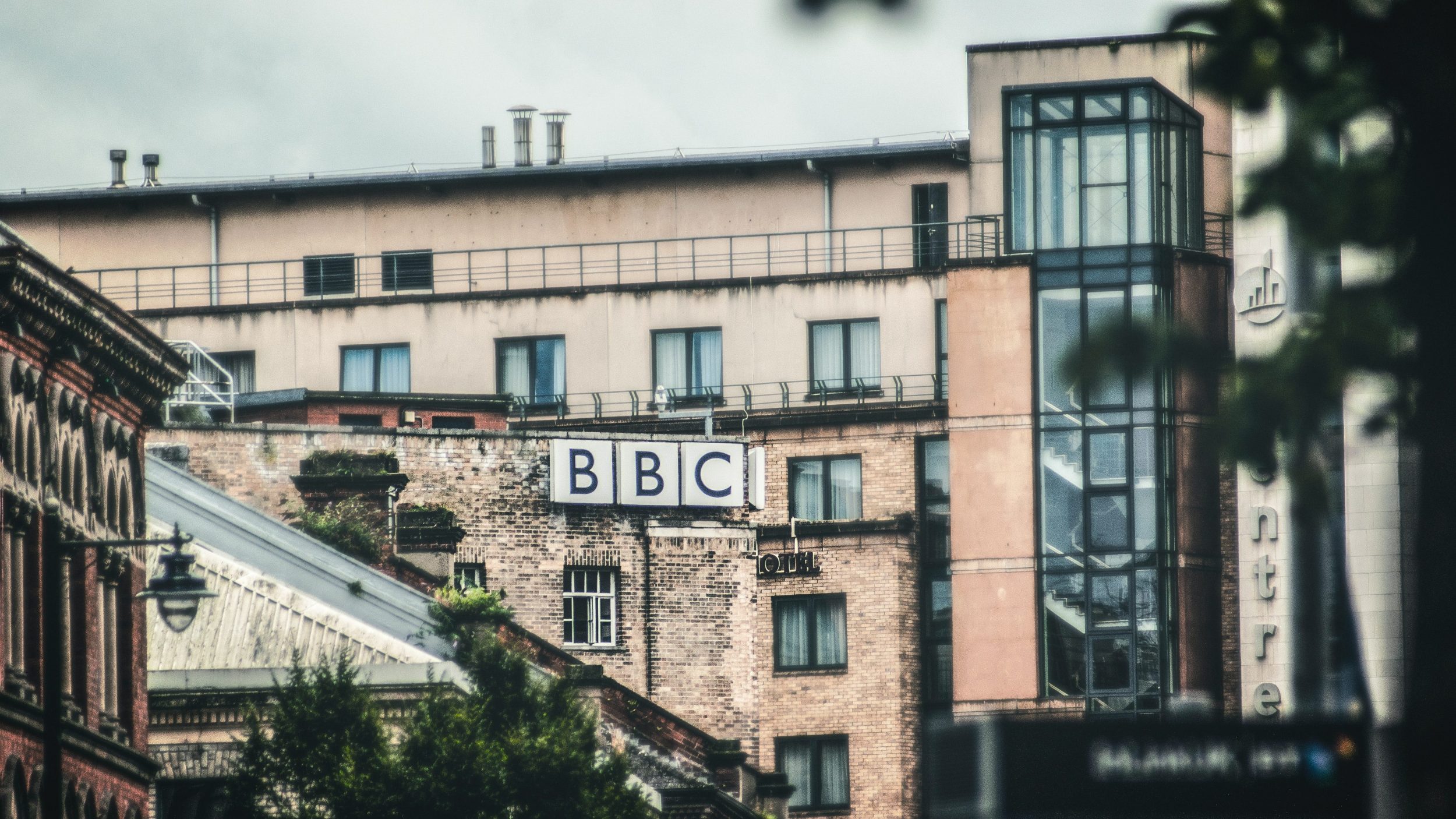 The UK government announced last month that it was freezing the BBC licence fee for the next two years and considering scrapping it after 2027. In advance of our public event on 2 March, where BBC Director General Tim Davie will speak about ‘Public Service Broadcasting in its Second Century,’ LSE Professor Lee Edwards writes about the importance of involving the public in the debate over the funding of public service media.
The UK government announced last month that it was freezing the BBC licence fee for the next two years and considering scrapping it after 2027. In advance of our public event on 2 March, where BBC Director General Tim Davie will speak about ‘Public Service Broadcasting in its Second Century,’ LSE Professor Lee Edwards writes about the importance of involving the public in the debate over the funding of public service media.
UK Culture Secretary Nadine Dorries’ statement to Parliament on the BBC licence fee review makes much of the current financial burden faced by the public, and particularly of the ‘rising global cost of living’. It casts the government as the actor that will protect families from constant price increases and as such, a review of the BBC’s funding model is presented not only as an important initiative, but as a moral duty for a government that cares about its people. However, these substantial changes are being decided without listening to the voices of the people they are supposedly designed to help.
According to Dorries’ statement, the licence fee is a ‘direct lever’ that the government can control in its efforts to reduce ‘pressure’ on household bills. In this context, ‘imposing’ an increase in the TV licence is an irresponsible act. ‘Those responsible for setting household bills’ (who could be policymakers or could be the BBC) should not be ‘reaching into the pockets’ of families for ‘just a little more’ each year.
In the subsequent discussions about the BBC’s future, this framing of the licence fee as a cost-of-living issue has obscured discussions of content and the non-economic value that the BBC provides. It also silences the public voice about these aspects of the BBC; the ubiquitous vox pops of people in UK streets that pepper broadcast and newspaper reports tend to focus on the cost of the licence fee, rather than the broader value that the broadcaster might represent. Whilst no institution is perfect, by framing the future of the BBC as a debate about funding the BBC, the conversation risks being neither fully democratic nor fully informed and denies the public a genuine voice in the future of the corporation.
The ministerial statement made no mention of the fact that, over the last 18 months, UK broadcasting regulator Ofcom has conducted a major review into the future of the BBC and public service media more generally. The ‘Small Screen, Big Debate’ programme of activity was designed to foster a genuine national debate about the future of public service broadcasting. It received more than 100 submissions and drew on a wide range of research to inform its conclusions. Those conclusions addressed a vast range of topics, including availability of public service media content, innovation in delivery, changing audience habits, and the complex media landscapes in which public service media are required to compete and meet their public service objectives.
As part of the Small Screen, Big Debate programme, I worked with Dr Giles Moss at the University of Leeds to conduct a Citizen’s Assembly focused on the future of public service media. The assembly provided 46 members of the public with an online space to debate different aspects of public service media (see this summary of the process from Involve).
The public’s priorities
The Assembly showed very clearly that the public have a range of diverse and strongly held opinions about public service media. We derived a range of recommendations from the discussions, which the participants rated in terms of their importance. At the top of the list was to maintain the independence of public service media from government, with 80% of participants ranking it as extremely important. The following recommendations were also ranked as very important:
- Ensure enough diversity of perspectives to ensure the public can make informed decisions / take an informed perspective about an issue
- Protect scientific and educational programming
- Prioritise accuracy and detail over speed of news
- Ensure public service content can be accessed across different platforms and is easy to find (e.g., better cataloguing, using up-to-date technologies)
- Diversify people who work in commissioning to promote new ideas and more creative decision making
- Place greater emphasis on accuracy, trustworthiness and truth, rather than simply seeking to balance opposing views
- Protect cultural / arts programming
- Review the relative importance of purposes and characteristics based on changing contexts (e.g. emphasise more the value of reliable news in an era of disinformation)
As the list suggests, the most important characteristics of public service media are not to do with value for money, nor related to the cost of living. Instead, most value was placed on the public service elements of public service media – diversity of content, adequate representation of the different publics it serves, accurate news, and space for programming that may not be commercially viable.
The participants’ opinions also challenge government narratives about the ways public service media should reform, which also emerge in discussions about the licence fee. For example, competing with commercial services was recognised as a challenge, but not a purpose, for public service media. Dependence on advertising revenue was regarded as problematic, since it meant commercial pressures might prevent media organisations from delivering on their public service remit. Indeed, the recommendation ‘Abolish the licence fee and run media on a purely commercial basis (e.g., advertising and/or subscription)’ was rated least important of all the recommendations from the discussion.
The question of funding
Certainly, the question of funding was recognised as a particularly difficult problem, with no easy solution. The licence fee was not regarded as an ideal model, and participants proposed a range of ways to make it more acceptable. These included introducing a progressive fee structure so that lower income citizens were not paying proportionally more of their income; modernising the basis for the fee, or making it more flexible; and including the public in decision-making processes about how to set the licence fee. Some participants who did not like the fee still paid it because they felt it was an important act of citizenship. Others felt it might guarantee independence from government, although the government’s involvement in setting the fee was also seen to be problematic.
The findings from the Assembly show that the government is right on one thing: the licence fee model is not ideal and could indeed be reformed. But being creative about how to fund public service media remains essential. Throwing the public service media ‘baby’ out with the licence fee ‘bathwater’ could be a huge mistake, particularly if that ‘baby’ is made up of the public service elements that the public value so highly. The quality of the discussions in our Assembly showed that, given enough information and opportunity, the public are very capable of discussing the complexities of public service provision, and establishing a view on what aspects of that provision are most important.
It’s not clear whether the recommendations of Ofcom’s Small Screen, Big Debate report have informed the government’s position on the licence fee, since the statement itself mentioned almost nothing about what the BBC delivers and focused only on what it costs. But when dealing with the future of public service media, perhaps the minister would be well-advised to ensure a democratic approach to her decision-making and genuinely listen to the public and their opinions, before making any final decisions about the future of funding.
This article gives the views of the author and does not represent the position of the Media@LSE blog, nor of the London School of Economics and Political Science.





